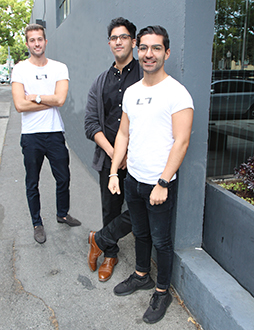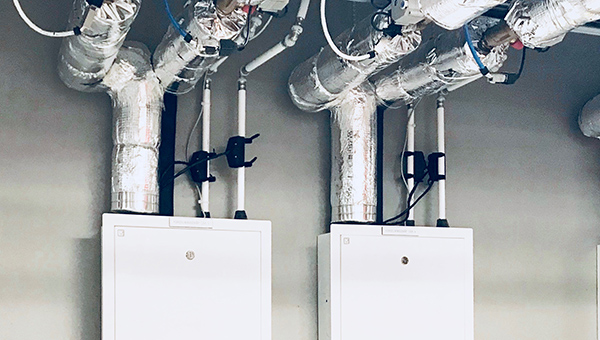The Humane City: Startup aims to reduce water consumption in apartments

Even in Sweden, like other parts of the world, cities and smaller towns are facing shortages of fresh water. Yet consumption continues unabated. That could change, however. A startup from KTH Royal Institute of Technology is marketing a solution that could help lower water usage by up to 40 percent.
The Trinometer is a smart technology that offers apartment dwellers information that’s typically available only to single-family residences which have their own water hook-up: accurate measurements of actual water consumption. Created by Labtrino, a startup by former KTH students, the measuring system and user app have been tested in KTH’s Live-In Lab student housing units, among other places.

Labtrino co-founder Thibault Helle explains that typically in rental or condominium units, water is included in the rental cost or the monthly fee, which is calculated according to the size of the unit instead of actual consumption.
However without any idea of their actual water usage, people tend to use more than they need.
“The perception is that water is free and the supply is infinite,” he says. “But that has begun to change now after the dry summer (2018) in Sweden, where many say that water will become the new oil.”
The system, which Labtrino is preparing to launch, uses ultrasound technology to measure water flow rate, and this meter sends the data wirelessly to the cloud where machine learning is applied to identify flow patterns and divide the volume and determine where water is being consumed. Each resident, as well as property managers, can use an app to get individualized feedback on hot and cold water consumption.

“Instead of presenting a total volume of a few thousand liters per month, our system can provide information about the water that went to the shower, to the toilet or the dishwasher,” Helle says.
Property owners can use the information from the system to bill for water usage based on the actual consumption for each apartment. Studies show that residents consume less if they pay for their actual consumption and in many cases property owners already apply this. Just as with an electricity bill, the consumption on the water bill is visible. According to a report from the Swedish National Board of Housing, Building and Planning, water consumption can be reduced by 30 - 35 per cent if residents pay for their actual consumption.
The app also provides tenants with individually-tailored nudges on how to efficiently lower usage, without sacrificing comfortability, as well as with tips and gamification in terms of comparison with the neighbors.
Labtrino says its technology can result is an up to 40 percent decrease in water usage on average, and as a result, an energy usage reduction of 8 to 16 percent.
The meter is compliant to the EU/International Metering Directive Certification MID/OIML R-49, enabling billing for cold and hot potable water. It also can detect water line leaks.

“We add an additional dimension by giving the residents access to the consumption information in real time,” Helle says.
Helle says that in its market research the company found a generally low awareness of water scarcity.
“Several real estate companies we have talked to have also mentioned that hot and cold water together often becomes more expensive than electricity,” he says.
Now Labtrino will carry out pilot tests with paying customers and Helle expects that the smart water meter Trinometer will go to the market in autumn 2019.
Håkan Soold

